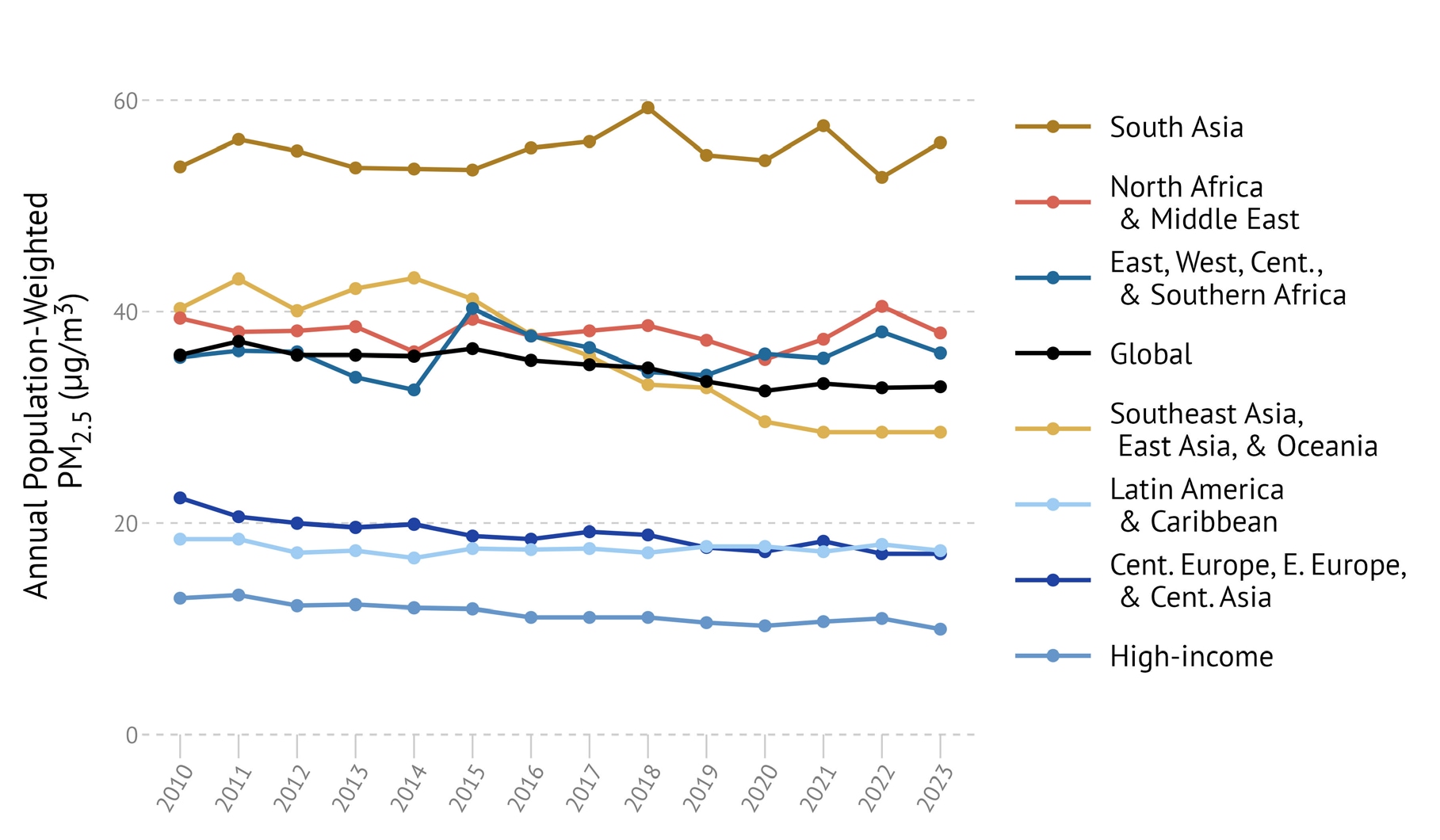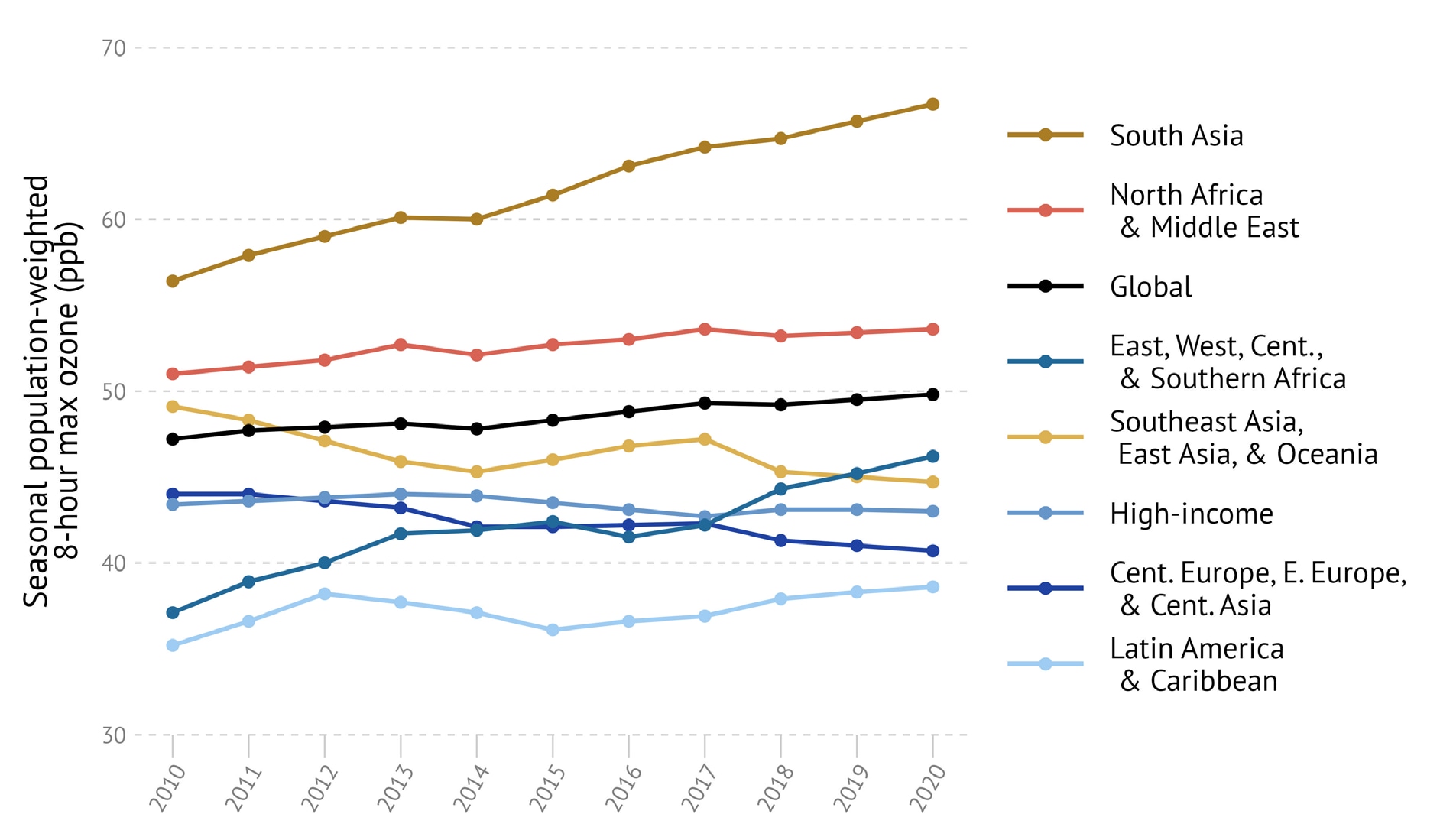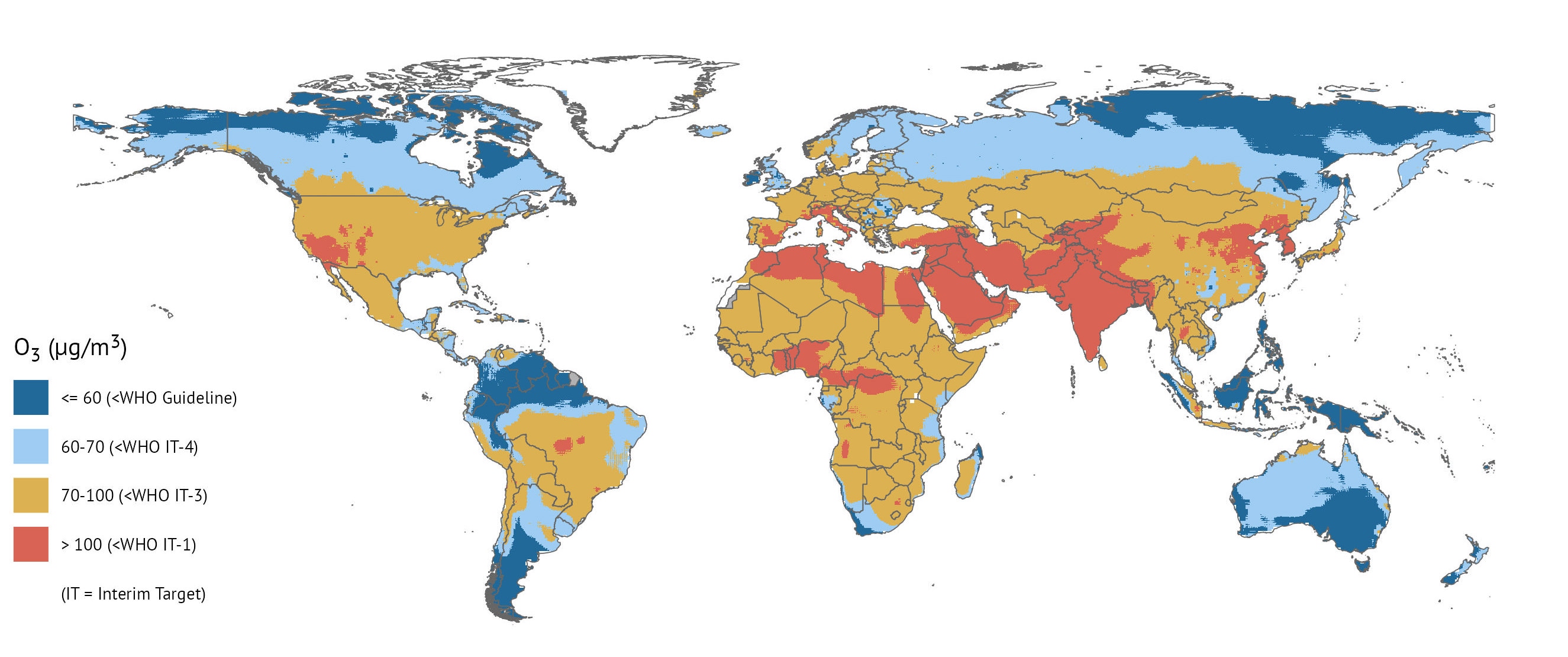- Home/
- Who Breathes The Dirtiest Air? Global Report Flags Alarming Numbers
Who Breathes The Dirtiest Air? Global Report Flags Alarming Numbers

The latest State of Global Air report paints a grim picture of the world's worsening air quality, warning that pollution has become the planet's second leading cause of premature death, behind only high blood pressure. The report, released by the Boston-based Health Effects Institute (HEI) in collaboration with the University of Washington's School of Medicine and the Geneva-based NCD Alliance, highlights a disturbing rise in pollution-related diseases, including a strong and growing link between dirty air and dementia.
According to the report, air pollution was responsible for 7.9 million deaths in 2023, accounting for roughly one in eight deaths globally. Of these, 4.9 million deaths were linked to exposure to ambient fine particulate matter (PM2.5), 2.8 million were attributed to household air pollution, and nearly 470,000 were caused by ozone exposure.
India and China Top Global Death Count
The findings show that India and China each recorded more than two million deaths from air pollution in 2023, together accounting for more than half of the global total. The report notes that 90 per cent of all air pollution-related deaths occurred in low- and middle-income countries, with South Asia, Sub-Saharan Africa, and parts of Southeast Asia bearing the heaviest burden.

Bangladesh, Pakistan, and Nigeria each recorded over 200,000 deaths, while Indonesia, Myanmar, and Egypt surpassed 100,000.
"The impacts of these pollution spikes linger long after the air has cleared," the report warns. "The human toll is striking: In 2023 alone, 7.9 million deaths and 232 million healthy years of life were lost worldwide due to air pollution."
Dementia, Heart Disease, and Diabetes Linked to Dirty Air
The report draws a connection between air pollution and neurodegenerative diseases, including dementia. It estimates that 626,000 deaths and 11.6 million healthy years of life lost in 2023 were linked to dementia caused by polluted air.

The data shows that air pollution contributes to a wide spectrum of non-communicable diseases (NCDs):
1 in 2 deaths from chronic obstructive pulmonary disease (COPD) were caused by air pollution.
1 in 4 heart disease deaths were linked to air pollution exposure.
More than 1 in 4 dementia deaths were tied to pollution.
Nearly 1 in 6 diabetes deaths were attributable to poor air quality.
Overall, 95 per cent of deaths from air pollution occurred among adults aged over 60, and 6.8 million of the total deaths were from non-communicable diseases.

Who Breathes The Dirtiest Air
About 36 per cent of the world's population is exposed to PM2.5 levels above the least stringent World Health Organization interim target of 35 micrograms per cubic metre.
Even more concerning, 11 per cent of the global population lives in regions where no national air quality standards exist at all.
In India and across much of South Asia, the report attributes the worsening trend to a combination of vehicle emissions, agricultural burning, coal-fired power generation, and urban construction dust. In parts of Africa and Latin America, natural phenomena like dust storms and wildfires add to the strain.
also read
Mumbai Pollution Linked To 57% Of Lung Cancer Cases: Maharashtra Government Warns of Health Crisis
Written by Shreya GoswamiInside Bengal's 800-Km "Green Wall" Along Jharkhand Border To Fight Air Pollution
Reported by Rittick MondalUnited Nations Approves First Carbon Credits Under Paris Agreement
Agence France-Presse
Latest Stories
- Written by Shreya Goswami | Friday February 27, 2026
Rising air pollution in Mumbai is now being linked to 57% of lung cancer cases, the Maharashtra government told the state assembly.
- Reported by Rittick Mondal | Thursday February 26, 2026 , Kolkata
The Mamata Banerjee-led government plans to set up an 800-km long greeen corridor, which will work as a "bioshield" - a forested area that would act as a "Green Wall" - along the Jharkhand border to intercept pollutants entering Bengal.
- Agence France-Presse | Thursday February 26, 2026 , Paris
The United Nations announced the approval of the first carbon credits under a global market aimed at reducing emissions, a mechanism that has faced scrutiny over greenwashing concerns.
- Wednesday February 25, 2026 , New Delhi
Air pollution is a concern not just for Mumbai but for countries and cities around the world, Maharashtra Environment Minister Pankaja Munde told NDTV Wednesday, after the city woke this morning to a blanket of smog for an eighth straight day.
- Reported by Radhika Ramaswamy | Thursday February 26, 2026 , Mumbai
Mumbai woke up to yet another blanket of haze on Tuesday morning, with a grey veil hanging over the skyline from Bandra to South Mumbai.
................................ Advertisement ................................
Latest Videos
Opinion
Blog | Well Done, Delhi. You've Turned Lung Sacrifice Into A Badge Of HonourSaikat Kumar Bose
Monday November 10, 2025Till some years back, Delhiites would ask angry questions to those in power about the capitals annual tryst with toxic air. This has changed. Those in the driving seat dont see the need to answer now.
Opinion | Why Indians Have Just Given Up On Air Pollution CrisisTanushree Ganguly
Friday December 20, 2024While some may argue that people in Delhi are now more aware of air pollution than they were a decade back, my rebuttal would be that awareness does not mean that people are concerned.
Opinion | You Must Outrage Over Filthy Air More Than Once A YearJyoti Pande Lavakare
Tuesday December 10, 2024Delhi welcomed us with monsoon rains and mangos. We were home. Fast forward a couple of years, in the winter of 2012, I found myself in denial about something other parents, mostly expats, were calling toxic air.
Opinion | Delhi's Air Pollution Situation Is Like A Bad MarriageNishtha Gautam
Friday November 22, 2024On a good day, such as today, the AQI reading in Delhi is 407. We are jubilant at the sickly sunshine trickling through the slightly dissipated smog. At least its not 1600.
दिवाली... पराली... सियासी जुगाली!Ashwini kumar
Monday November 18, 2024दिल्ली-एनसीआर में प्रदूषण का समाधान तो आज तक मिला नहीं. हर साल चिंतित होकर हम-आप सांसों की तकलीफ के साथ-साथ दिल और ब्लड प्रेशर के मरीज भी क्यों बनें?


















